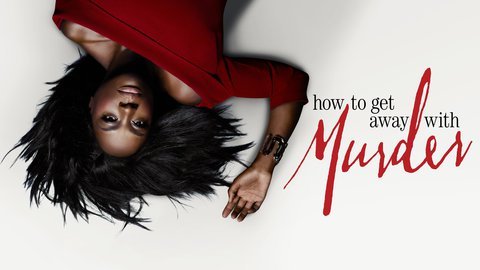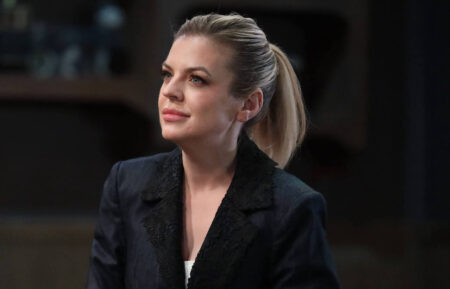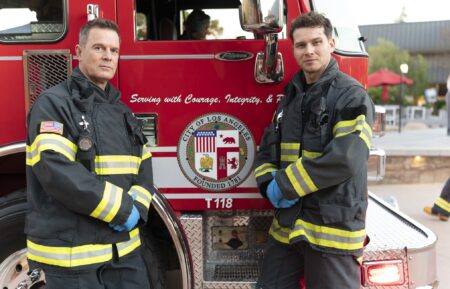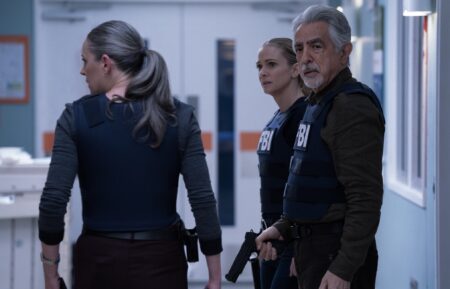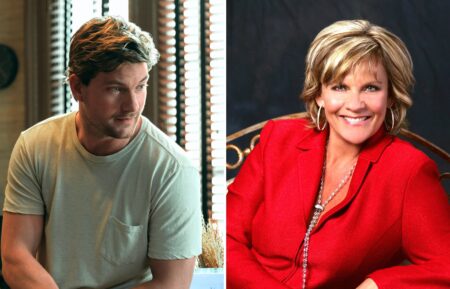How TV Deaths Are Changing the Way We Grieve
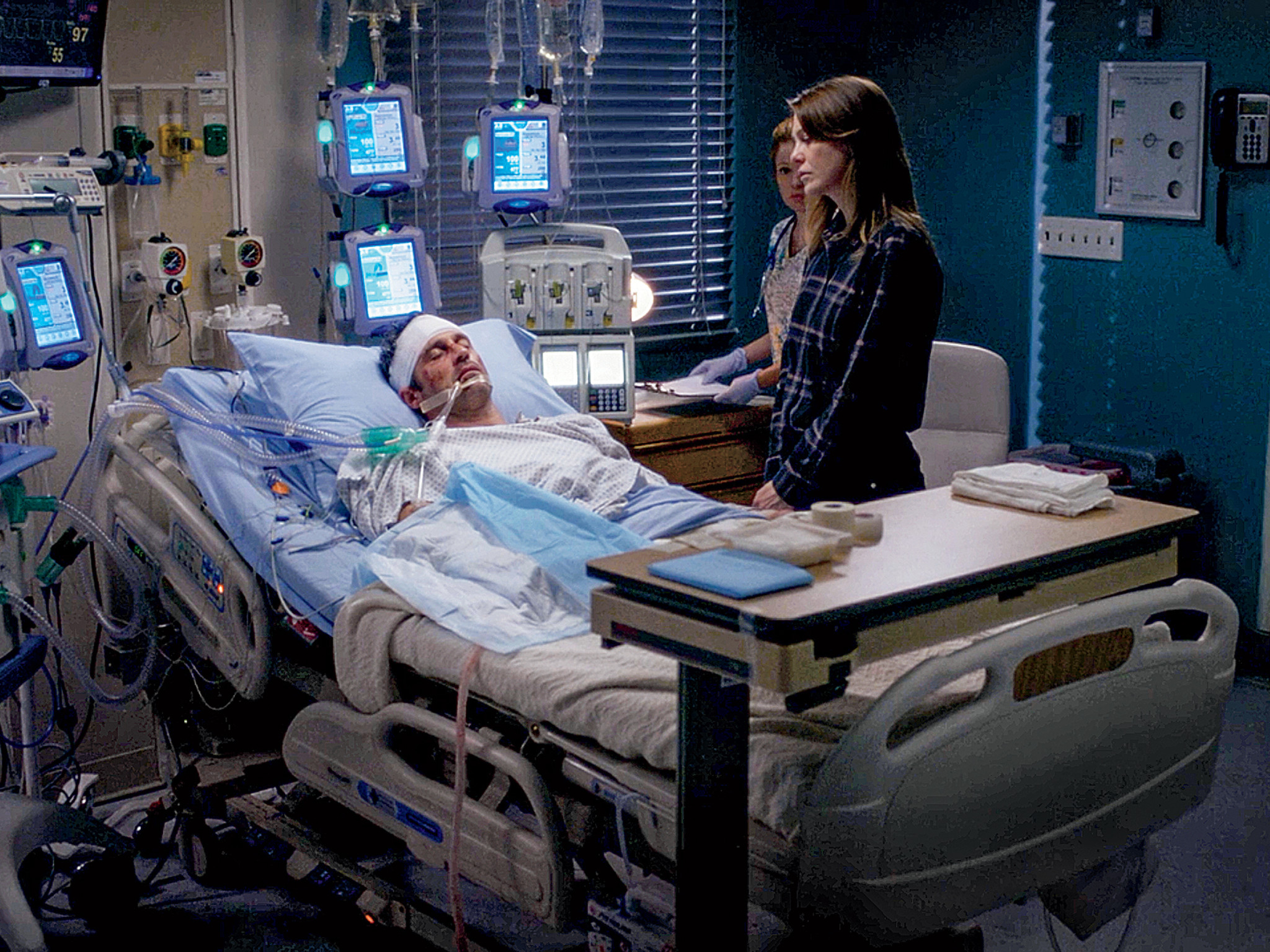
Caution: Spoilers ahead …
Unless it’s a request for money, college freshman are not known for checking in with their parents. That’s why I knew it was important when my son called me, wanting to discuss something that had him in tears.
He’d just seen someone he’d come to know and love die right in front of him. Okay, so it was a fictional human – Noah from The Walking Dead. Still, he sounded deeply depressed.
It reminded me of that mix of grief and guilt I went through four decades earlier, when a main character (Henry Blake) from one of my favorite shows (M*A*S*H) died unexpectedly. Like my son, I was sad because someone I enjoyed seeing every week was gone for good. And I felt weird because I was mourning the demise of someone who never actually existed.
As it turns out, though, feeling bad after a TV character dies can actually do some good.
“That grief is a reflection of a connection that has been lost, and that means you don’t have to have met them to feel sad,” explains David Kessler, founder of Grief.com, a website that provides help for those dealing with the death of a loved one. “It could be your grandma, it could be Princess Diana, it could be Josh Charles’ [character Will Gardner] from The Good Wife. If we’re connected, we’ll grieve.”
Given the 2015 primetime death toll alone, it was hard to resist sending out weekly condolence cards. Noah was hardly the only Walking Dead character to reach his demise. Familiar characters dropped like famous flies. Derek Shepherd on Grey’s Anatomy. Fish Mooney on Gotham. Juliette on Grimm. Charlie Bradbury and, well, Death on Supernatural, Zoe Barnes on House of Cards. Zeek Braverman on Parenthood. Eddie Thawne on The Flash. Isis the dog on Downton Abbey. Seemingly every third character on Game of Thrones.
“This was not something network television did regularly before, but now there’s so much of it that it feels de rigueur,” explains executive producer Carlton Cuse, who offed several characters during his days on Lost, and has done the same in current shows like The Strain and Bates Motel. “The irony is that now people don’t get as shocked because they expect it. I think Game of Thrones really accelerated those expectations,” he says.
Shows have killed characters for years, but in the past, the deaths were about as emotional as losing your pet goldfish. Guest actors were introduced just so there could be a tragic death without losing anyone important (just ask the Star Trek red shirts). Stars fighting over contracts pretty much signed their own death warrant (like Valerie Harper, who was axed from the ‘80s sitcom that bore her name). Anyone with a reputation as a jerk on or off the set usually got summoned to that great casting call in the sky (we’re looking at you, Shannen Doherty).
However, we’re living in “a culture wanting TV to be more realistic,” says Kessler. In turn, TV deaths have become more not only more surprising but also more realistic. Robert King, executive producer on The Good Wife, explains: “It’s not just using death as a cliffhanger anymore. We’re going up against the mystery of life, how someone so alive can suddenly just be gone. It’s an odd thing and the more TV can reach that side of things, the better.”
Which is why what counts now isn’t a willingness to part with a popular character. Rather, it’s all about how the surviving characters deal with that loss. Everyone has to learn how to carry on after death in real life, so bringing that struggle to the small screen is a challenge producers are increasingly happy to do.
“It used to be that someone would die and never come up in conversation again,” Kessler says. “Those days are done. People are having memories, flashbacks, tough times with death. And any consistent exposure like we can get to a loss of life not in our family can help us to begin to understand the real thing when it does happen to us.”
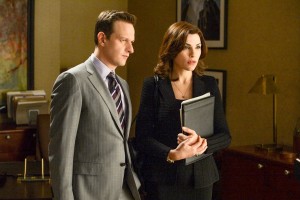
.
When Will Gardner was shot and killed on The Good Wife, King and his wife Michelle knew fans would be outraged at first. However, says Michelle, “the one thing we did right was that his death was not forgotten the next week. The other characters had to deal with it for a long time, at least in terms of TV time.”
Adds her husband, “Each episode afterward was a week later and a week later, and it allowed our main character, Alicia (Julianna Margulies) to ask herself questions like ‘Why am I practicing law?’ and ‘Why am I in this stupid marriage?’ Death can be entertaining on a series but what’s harder is to show the depression it brings while still making that entertaining.”
The key, says Kessler, is not to have characters discussing the actual death. He regularly consults with producers who want their shows to portray these sensitive moments right, so he makes sure “if they have a sudden death, it’s not realistic just talk about it like it’s breaking news. You want to have a line here or there, like, ‘His clothes are still in the wash and I can’t bring myself to dry them’ or there’s a call six months later to confirm the deceased’s dental appointment and someone has to break the news again just as they’re coming to terms with it. It’s the fallout that’s important.”
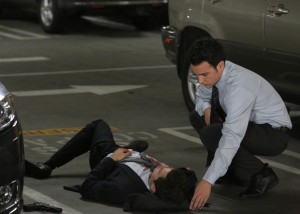
Bones
Last season Bones killed off John Francis Daley’s character, Lance Sweets. The actor had asked to leave the series because his writing/directing career was taken off, so the writers shuffled him off this mortal coil in a way that allowed for “two really good episodes where everyone had to come to terms with his death and the aftermath of that shock,” says executive producer Jonathan Collier. “We’re really proud of those shows and something that negative actually turned overwhelmingly positive because it brought new life to the other characters.”
“People were really angry when we killed Juliet, Sun and Jin in particular on Lost,” recalls Cuse. “They had a deep association with those characters so they were deeply affected when they were gone. But the positive side of the show doing that was that it showed death is a part of life. It’s something we all are going to face, even though culturally it’s pretty hidden from our lives. Like a lot of topics, TV can bring it up and lead the discussion by forcing you to confront it after the characters have been killed just like everyone on the show.”
It’s not just viewers who learn how to deal with death from watching their favorite characters do the same. So do the people who created those characters in the first place. When Robert King worked on the Good Wife episode in which Will Gardner died, it stirred up memories of his father’s sudden death a decade earlier. “Writing the episode helped me,” he says. “It was fiction but it brought up thoughts I didn’t know I had. Sometimes, what we do for a living might be considered cynical, but this really was a case of a showrunner also trying to deal with his own situation.”
According to How to Get Away With Murder executive producer Pete Nowalk, “we have to treat it as real, and go through the process of watching someone we’ve helped create die just like the characters on the series do. It’s kind of a catharsis for us and if we can help somebody else connect with death in a meaningful way, it’s worth it.”

Bones (2005) where to stream


